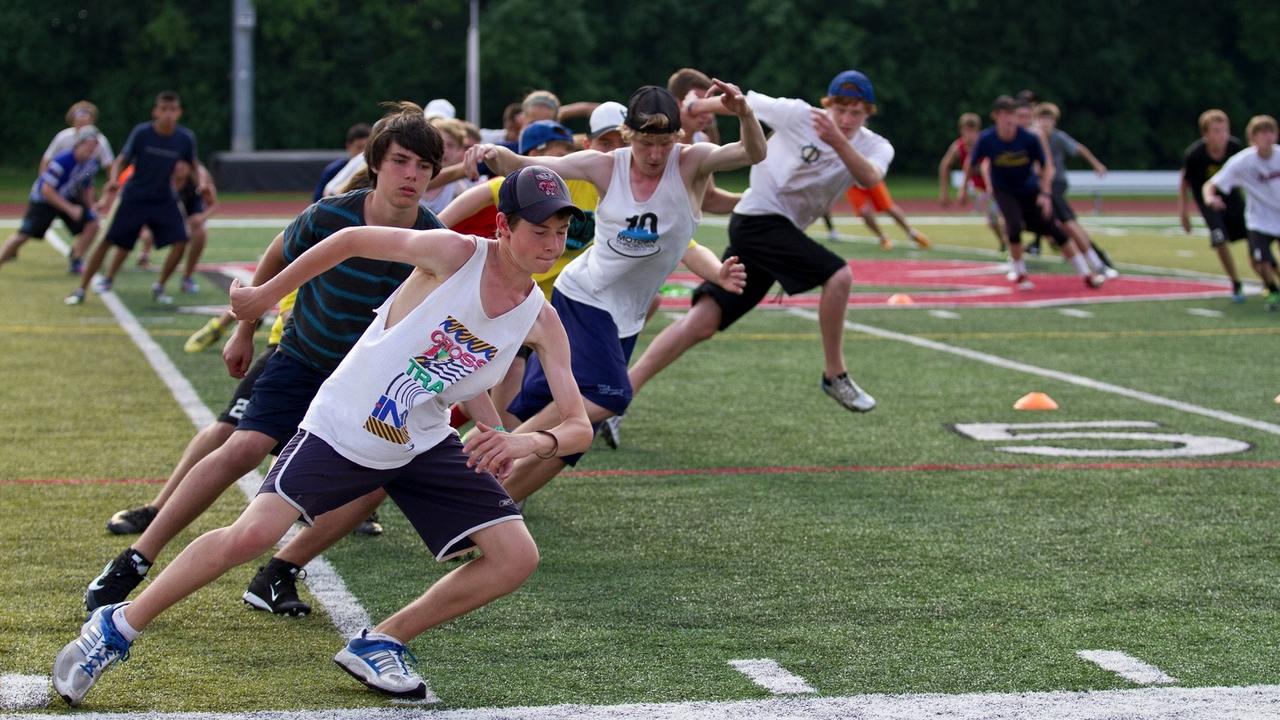Avoid Injury! 3 Ways to Balance the Demands of In-season Ultimate Frisbee Training

Photo by Nick Lindeke for UltiPhotos
With many of our readers into the thick of their seasons, lots of people ask us how best to fit in their S&C training around team practices, tournaments, and everything else they’ve got going on. The length and intensity of the season is one of the real challenges of playing high-level ultimate, and it’s not uncommon for athletes to have sporting commitments almost every day of the week!
Last week we gave you some ideas for avoiding burnout from the mental stress of a busy schedule, and today we’re looking at ways to keep our bodies fit and firing too. But with a good off-season of lifting behind you, you’ll still want to maintain the gains you worked so hard to achieve. Finding the right balance between all the competing demands of your in-season schedule is the key to great training, and we’ve got three tips to do just that.
Prioritize
With practices, scrimmages, travel, and tournaments all competing for your time, it may be difficult to keep training at the same volume and intensity as you were earlier in the year. That’s fine! In fact, when you’re in the midst of the season, it’s probably a good idea to cut back a little on the gym sessions. So how do you know what to stick with and where to lighten up? The key is what’s important at this stage of the season. And priority number one has to be making sure you’re fit and healthy enough to be out on the field come Saturday morning!
This means avoiding injuries, so you want to lower the amount of risk in your training regimen. Avoid targeting big performance increases—that’s what the off-season was for. If you’re not where you wanted to be, you know to start lifting earlier next year. But the last thing you want is to end up injured because you were pushing yourself too hard in the gym.
Likewise, if you don’t have the time to fit in all your exercises, consider what’s most important to your athletic performance. Single leg strength directly translates to a lot of the movement demands in ultimate. Bench press? Slightly fewer. If you do need to skip a few exercises, know which ones to keep.
Keep lifting hard and fast
Even though time is tight and we have to prioritize, not lifting altogether can be just as bad for you as doing too much. You’ve spent the entire off-season working hard for performance gains, so why would you know let them go to waste? Don’t kid yourself that all the running you’re doing is keeping your legs strong. Nope. If your legs are feeling fatigued, cutting down on some of the running is a better alternative to quitting your lifting sessions.
The leg strength you’ve built will keep you going deep into tournaments and reduce your injury risk. That’s why, in the Ultimate Athlete Project, we still lift twice a week in season. These don’t need to be long sessions: in fact, you can maintain your strength in two hours or less.
The key is to keep the intensity high. We recommend more frequent, shorter sessions with heavier weights instead of fewer, longer sessions. Keep lifting weights that make you work, but cut down on the number of sets if you need to. Likewise, your speed and agility workouts should still be at full intensity, with a shorter session if you do feel like you’re getting tired on a day to day basis.
Listen to your body
Building on the point above, it’s important to recognize when you do need a break. And keeping your weights high in season actually provides a perfect opportunity to keep an eye on your fatigue levels. You might not be upping your deadlift PB so regularly now that you’re only in the gym twice a week, which is fine, but if you notice a sudden decrease in how much you can lift, this may be a sign that you need to cut back. Consider dropping a set, giving yourself more recovery time, or anything else that eases the burden.
Pay attention to your body and respect what it tells you. If you wake up with the same minor pain every day, work out what’s causing it! It’s better to address these things while they’re minor rather than waiting for them to derail your season. Also make sure your recovery habits are helping you—get enough sleep, protein, and downtime to ensure a healthy body and mind.
If you follow these three steps, you’ll be able to keep training throughout the season, maintain your performance levels, and give yourself the best chance of staying fit for that final, crucial game on Sunday!
Learn More!
Sign up for a quick mini-course about In Season Training for Ultimate!
or
Read or download our complete Ultimate Frisbee Workout Guide

